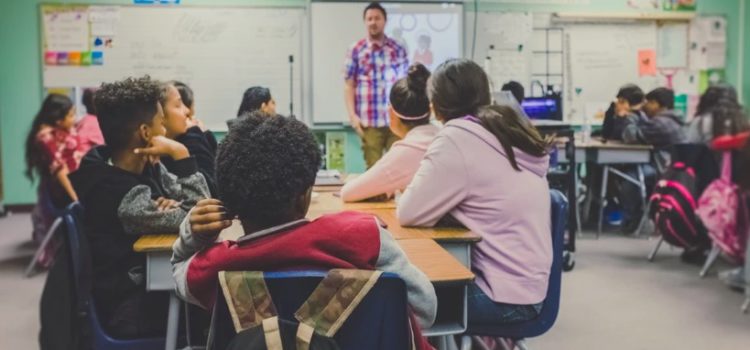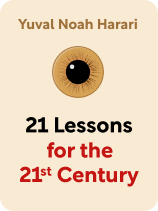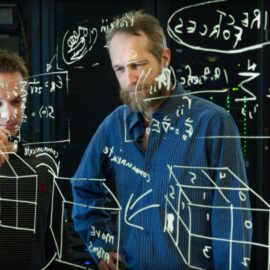

This article is an excerpt from the Shortform book guide to "21 Lessons for the 21st Century" by Yuval Noah Harari. Shortform has the world's best summaries and analyses of books you should be reading.
Like this article? Sign up for a free trial here .
What is the problem with the modern education system? Do modern schools give children the right training to equip them for the job market of the future?
The education that children today receive will determine how well-equipped they’re not only to navigate but also to shape the future. However, the modern education system isn’t fit to prepare children for the 21st century as it is designed to prepare them for a job market that’s becoming obsolete.
Here is why the modern education system is failing us and what we can do about it.
What Is the Problem With the Modern Education System?
The problem with the modern education system is three-fold.
First, humans don’t know what the world will look like in 50 or 100 years. This has always been true to some extent, but, in the past, people could reasonably predict what kinds of jobs would exist and generally how government and politics would function by the time their children and grandchildren became adults. Now, technology makes it impossible to know which jobs will become obsolete, what the global political system will look like, and whether the human body will have new capabilities as a result of bioengineering. Without having a reasonable expectation of the future, it’s impossible to know how to prepare children for it.
Second, the focus and the goal of the modern education system are outdated. In the centuries past, information was scarce. Depending on where you lived, you had access to books, radio, and television—and whatever information you received may have made it through censorship screening by the government. School aimed to arm students with more information, in order to broaden their scope of knowledge and view of the world. By contrast, now people face an information overload, and instead of trying to censor information, some governments add to the noise by distributing false and misleading information to confuse people. As a result, schools no longer need to pile more information on students. Instead, they must teach students to make sense of the vast amount of information they take in, to distinguish between trustworthy and questionable sources, and to weave the pieces of reliable information into a comprehensive view of the world.
Third, the modern education system puts too much emphasis on teaching students skills, such as coding and solving math equations. In the past, such skills prepared students for future jobs. However, at a time when the future job market is a mystery, this model is likely to waste students’ and teachers’ time on tasks that will ultimately be performed by robots. Instead, experts suggest teaching students “the four Cs”—communication, collaboration, critical thinking, and creativity. Additionally, schools should teach fewer technical skills and more life skills, such as how to learn new things, cope with change, and maintain mental balance amid instability.
Facing the Uncertainty
The only thing that’s certain about the rest of the 21st century is that it will be filled with constant change and uncertainty. Historically, the first part of a person’s life was a period of learning and building an identity, and the rest of her life was spent working and fine-tuning her identity. As the 21st century progresses, this clean division will be replaced by ongoing learning and adapting. Future workers should be prepared to switch careers every decade or so, as their previous professions become automated and obsolete. This way of life will be immensely stressful, so children will be far better served by learning to maintain mental stability amid constant change than they will be by memorizing the Pythagorean theorem.
It’s clear that the model on which the modern education system is based on is not effective for 21st-century needs—but, so far, there is no viable model to replace it. A new educational system needs to be designed to fit an uncertain future, and it needs to be scalable so that it can be as effective in rural Ecuador as it is in wealthy suburban California.
The uncertainty of the future weighs most heavily on today’s children and teens, who face a conundrum:
- They can’t trust adults to lead them into the future. Not only are the adults equally uncertain about what the future holds, but they’re also more likely to be entrenched in the past and unable to adapt.
- They can’t rely on technology to guide them. Technology can be a useful tool, but it can easily manipulate its users. As Big Data and algorithms become increasingly powerful, big tech companies are in a race to learn enough about people to influence them.
- They can’t simply listen to their hearts to tell them what’s right. The voice in their heads is actually an echo of government propaganda, commercial marketing, and other outside influences.
If children and teens today want to determine their own destinies, they must get to know themselves by also understanding all the external forces that influence them. Getting to know yourself has always been an ingredient in a rich life, but in the 21st century, the stakes are higher. With the rise of technology, you’re actually in a race to get to know yourself faster than the algorithms can get to know you—and the winner gets to decide how you behave, what you buy, and who you vote for.

———End of Preview———
Like what you just read? Read the rest of the world's best book summary and analysis of Yuval Noah Harari's "21 Lessons for the 21st Century" at Shortform .
Here's what you'll find in our full 21 Lessons for the 21st Century summary :
- What the unique challenges of the 21st century are and will be
- Why religion can't solve these 21st-century challenges
- How algorithms like Netflix recommendations are teaching you not to trust yourself






